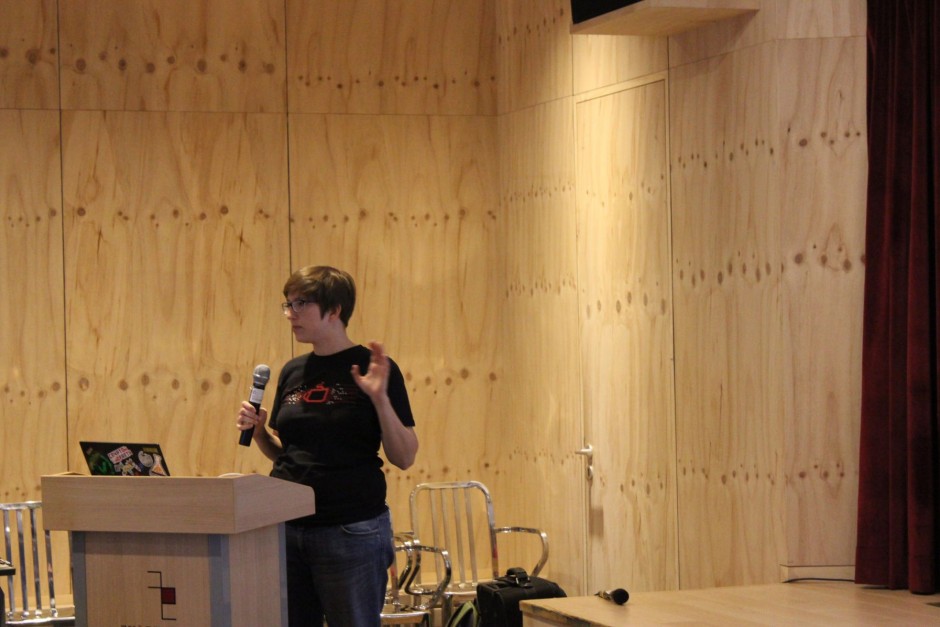Your voice matters: why we worked to engage citizens on the European Commission’s platforms consultation
We submitted your comments to the EU Commission’s platforms consultation. Let’s hope they listen and protect our right to link. #SaveTheLink
Over the past few weeks we’ve been asking our community to weigh on on a critical European Commission consultation that will determine how we access information, and what we’re allowed to see and say online. (TL;DR: it could make or break the hyperlink.)
This consultation asks key questions of the public, and our answers will impact whether new regulations drafted at the European level either restrict our freedoms online or continue to facilitate interconnectedness.
So, it’s fair to say it’s a pretty big deal.
And as always, when we asked our community to step up and tell the Commission that we expect them to safeguard our right to link, you replied in huge numbers. In fact, we had over 10,500 responses to the Commission, using our Internet Voice Tool.(You can see those responses on this page, if you scroll down!)
Thank you to all of you who took the time to write detailed comments to the Commission. It’s moments like this when we all need to step up and ensure that our online rights are protected, and with a community of over 90,000 Internet users who have come together to fight back against threats to the link, we had a solid base of concerned citizens to reach out to.
A note on the consultation
When we first took a look at the consultation, it was a little overwhelming.
Clocking in at over 40 pages and covering everything from “cloud computing” to “the role of websites and online platforms in removing and filtering content,” we saw an immediate hurdle to getting Internet users to meaningfully weigh in: there’s simply so much to do.
To help make responding easier, we did our best to pull out the key questions that would impact our right to link. And those questions fit broadly into two categories:
Should sites and services you use online be required to police your online activity, censoring and removing posts that are deemed inappropriate?
Should aggregators be forced to pay a fee to link out to content freely available elsewhere online?
DOWNLOAD A LINK TO OPENMEDIA’S POSITION PAPER TO READ MORE ABOUT THESE ISSUES
Now, of course, that’s not how the questions were asked. If they were asked that way, the Commission probably wouldn’t have had so many experts and Internet users scratching their heads over the meaning and slant of the questions. After all, we know that the way the question is posed has a big impact on the answers that will be received. Now, this cuts both ways, and there are surely people out there who would argue until the ends of the earth about each word in each question.
What should be obvious, however, is when you’re soliciting feedback from the general public, the general public needs to be able to understand what you’re asking them. Not so with this consultation.
Take this question, for example:
What a mouthful.
I don’t want to suggest that anyone isn’t up to snuff, but I think it’s safe to say that the average Internet user probably doesn’t have the time or the inclination to research and understand the implications of a service being categorized as conduit/caching/hosting under the E-Commerce directive. (Essentially this means that a website or service has no editorial control over what content is posted, hosted, or transmitted through them, meaning that they are also shielded from legal liability associated with the content. Essentially, it’s what allows every service from Facebook to SoundCloud to Blogger to function without constant, crippling fear of lawsuits.)
The point here is that you have to meet people where they are at. And crafting digital policies that are reflective of the will of the public means meeting them in a place where you’re willing to explain and simplify the issues, at least a little bit.
This is the crux of why we saw tools made by concerned public-interest organizations popping up like daisies. In addition to our tool on SaveTheLink.org/yourvoice, the European Digital Rights Initiative (EDRi) made a tool, Copyright for Creativity tried to help people tackle the copyright-related questions, and the Copia Institute helped to give users the background info they needed to make the most of answering the survey.
Given how complicated the official process I highlighted above has been, we’re thankful that you stuck with us through the consultation, and that so many of you took the time to have your voices heard.
We’ll keep you in the loop about what’s next for the Commission’s digital policy plans, and about new threats to the link.
In the meantime, if you’re not a part of our network, you can join us at SaveTheLink.org.




 Take action now!
Take action now!
 Sign up to be in the loop
Sign up to be in the loop
 Donate to support our work
Donate to support our work